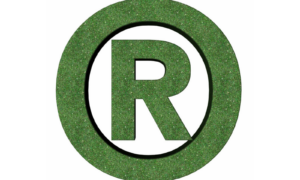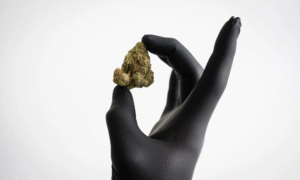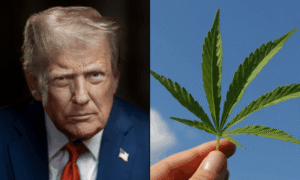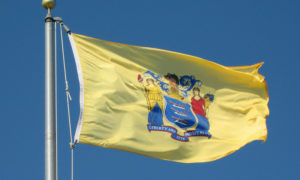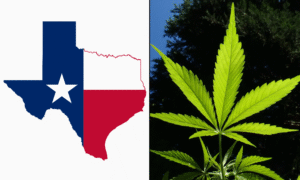California Cannabis Label Alert: New Prop. 65 Requirements Coming

OEHHA added “THC” to the list of chemicals known to cause reproductive harm
Article By: Hilary Bricken
For better or worse, the Safe Drinking Water and Toxic Enforcement Act of 1986 (a/k/a Prop. 65) has long plagued California businesses. And cannabis businesses are no exception (see here and here). Prop. 65 requires businesses to provide “a clear and reasonable warning before they cause an exposure to
a chemical listed as known to the state to cause cancer or reproductive toxicity.” The Office of Environmental Health Hazard Assessment (OEHHA), the agency in charge of implementing and overseeing Prop. 65, publishes and updates the list of chemicals known to cause cancer, birth defects or other types of reproductive harm. That list now includes hundreds of chemicals.
Effective June 19, 2009, marijuana smoke was added to the Prop. 65 list of chemicals known to cause cancer. OEHHA’s Carcinogen Identification Committee “determined that marijuana smoke was clearly shown, through scientifically valid testing according to generally accepted principles, to cause cancer.” Technically then, all cannabis flower is subject to Prop. 65 warnings, because all flower contains/produces “marijuana smoke” and because there is no safe harbor level per OEHHA. In addition, oils, wax, vapes, etc. usually contain at least one chemical on OEHHA’s list.
Given these facts, there is hardly a cannabis business in California that won’t find itself subject to Prop. 65 warning requirements at some point. And none of the state agencies in charge of overseeing the implementation of the Medicinal and Adult-Use Cannabis Regulation and Safety Act (MAUCRSA) directly assist licensees in figuring out what they need to do to protect themselves under Prop. 65 (other than the handy fact sheet recently published by the California Department of Public Health that gives a slim nod to Prop. 65 compliance).
In January 2020, OEHHA added “THC” to the list of chemicals known to cause reproductive harm. At the same time, OEHHA also determined that “marijuana smoke”, in addition to being listed as a cancer-causing carcinogen, also causes reproductive harm (which will definitely change the content of the safe harbor language on flower products across the industry). There was a one year grace period for cannabis businesses to comply with the Prop. 65 safe harbor warning label provisions, and that grace period ended in January of this year.
Now, OEHHA is proposing to amend Prop. 65 regulations again, but this time it’s to establish “tailored safe harbor warnings for cannabis (marijuana) smoke and delta-9-tetrahydrocannabinol (delta-9-THC) exposures would assist affected businesses and consumers of those products.” Specifically, the “proposed amendments will adopt new safe harbor warning regulations to address the methods of transmission and content of warnings for exposure to cannabis (marijuana) smoke and delta-9-tetrahydrocannabinol (delta-9-THC).” Here is a copy of the proposed rules, and here are some of the highlights:
- The proposed safe harbor warnings are optional, but it would be foolish not to adopt them since they’re your best chance of complying with Prop. 65;
- The safe harbor warnings (and methods of transmission) will apply to smokeable and ingestible cannabis products (i.e., edibles) as well as THC-based or containing vapes, dabs (which is an undefined term), and dermally transmitted products (like skin patches); and
- There will be a safe harbor warning for “environmental exposures” to cannabis and/or THC for establishments “where such exposures can occur on the premises of the business” (i.e., consumption lounges as permitted under MAUCRSA).
The safe harbor warnings themselves are definitely different from the current warnings used by cannabis businesses (see here). Here are a couple of the proposed warnings with the updated, “tailored” safe harbor language:
- The Prop. 65 symbol; The word “WARNING:” in all capital letters and bold print, and the words, “Smoking cannabis increases your cancer risk and during pregnancy exposes your child to delta-9-THC and other chemicals that can affect your child’s birthweight, behavior, and learning ability. For more information go to www.P65Warnings.ca.gov/cannabis.”
- The Prop. 65 symbol; The word “WARNING:” in all capital letters and bold print, and the words: (i) “Consuming this product during pregnancy exposes your child to delta-9-THC, which can affect your child’s behavior and learning ability. For more information go to www.P65Warnings.ca.gov/cannabis”, or (ii) if the product also exposes consumers to one or more listed carcinogens, “Consuming this product exposes you to carcinogens including [name one or more listed carcinogens], and during pregnancy exposes your child to delta-9-THC, which can
affect your child’s behavior and learning ability. For more information go to www.P65Warnings.ca.gov/cannabis.”
The public has until May 18, 2021 to get comments into OEHHA on the proposed tailored safe harbors for cannabis and THC products. Nonetheless, I anticipate that OEHHA will adopt the regulations as a written, which means hundreds of cannabis companies will need to re-work their current product labels to comply with the new safe harbor language to remain as safe and as compliant as possible. Otherwise, as usual, the notorious Prop. 65 bounty hunters will abound.
Cannabis businesses should start examining their inventory now and taking stock of the time and expense it will take to protect themselves as these new safe harbor warnings undoubtedly roll out.
Source: Canna Law Blog

